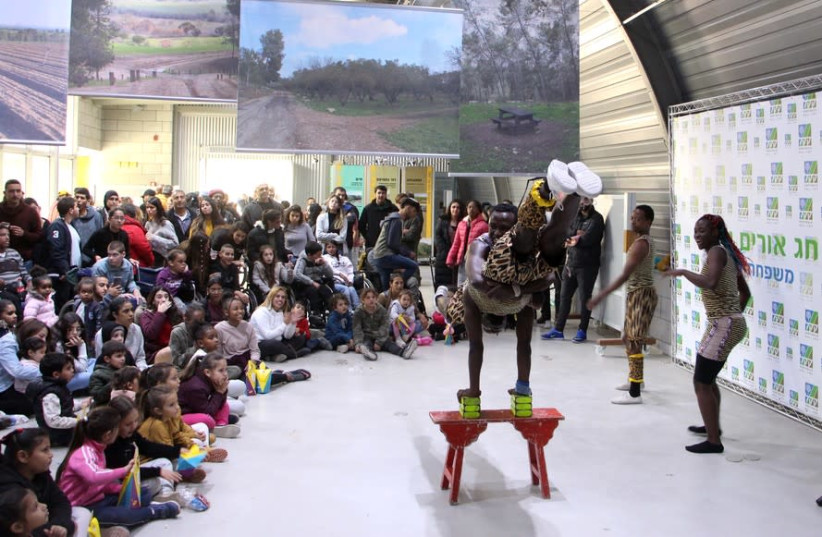The Jewish people have been celebrating the ultimate story of rehabilitation for thousands of years. We convey the importance of that journey every Passover Seder: “You shall tell your child on that day” (Exodus 13:8). The Haggadah text evolved as a series of conversations between parent and child.
The Four Questions, the uncovering and covering of matzos, lifting the Seder plate, hiding the afikoman are theatrically designated to keep the children alert and curious, to motivate them to listen. Children need to be motivated, especially in doing tasks they find tedious, such as listening to their elders waiting for the delicious food, or, at ALYN Hospital, doing physiotherapy.
Indeed, pediatric rehabilitation is often a tedious, laborious process, in which we need to invest time and tricks to motivate a child to stay with us and keep pushing towards the end goal – liberty from limitations.
Rehabilitation requires motivation. It has to be fun. The work done daily at ALYN by the children who need rehabilitation after injuries or having survived serious illness is the actual toil of progressing from dependency to freedom. Every day, each child strives to shake off the shackles of immobility, of passivity, of need.
No one wants to be a “special needs” child. Children jump at the chance to play and interact, as long as they are interested in the process itself. They long for the freedom to be independently mobile, whether walking, running or gliding down the halls in a wheelchair.

Children have the right to move freely, to be at liberty to be heard and understood, to take care of their own self and to recognize their personal aspirations. The freedom to enjoy life.
What ALYN does
At ALYN, we toil for these freedoms daily, hour-by-hour, helping children with disabilities to reach their abilities with the support of advanced medicine and technology, through understanding developmental and pathological processes, and patiently investing numerous hours of therapy sessions. For children with special needs, often rehabilitation is a never-ending process. As they grow and develop, new goals, new challenges and new needs appear.
So it is for the Jewish people at large. The exodus from Egypt was a seminal event in our history, but it is also, always, an ongoing process – even now.
The Israelites were limited, shackled and disabled. They began their rehabilitation process gradually. Initially, they obtained the ability to move forward, and migrated from Egypt and perilously crossed the Red Sea into the desert.
Then they gradually augmented their voices, frequently complaining about their challenging and precarious journey – just as we often encounter families and patients frustrated by the treatment, who see only the difficulties and not the progress. Finally, after their extensive trek in the desert, they are rehabilitated and acquired independent mobility and the ability to manage their lives and accept responsibility.
The rehabilitation process of enslaved people who shift from physical and spiritual virtual disabilities to freedom is laborious. It requires immense patience, with occasional setbacks along the way and a heavy caregiver burden that can sometimes leave them near despair.
It required the dedication of a multidisciplinary team. Although Moses received an undertaking from a higher power (the Burning Bush as an apparition of a case manager, if you like), he had to rely on his team and their capabilities: since he did not have a speech therapist at his service, he used alternative and augmented communication through his brother, Aaron.
As no psychologist was free at the time, the people benefited from Miriam’s spiritual accompaniment and support. Rehabilitation was supplemented by assistive devices such as Moses’s staff.
Moses is also the first to use a documented organizational consultant to promote his support team – his father-in-law, Jethro, who instructed him how to manage a broad team and delegate. Education was an essential part of the rehabilitation process: the Israelites had to be prepared to receive the Torah.
Finally, no rehabilitation process is complete without transitioning the patient to the next phase. Moses does not let go before he makes sure to mentor the next generation of caregivers, Joshua.
The migration from Egypt is the exodus of a people living under limitations, a dependent people who were successfully guided through the desert to the Promised Land. Pediatric rehabilitation shares much of its needs with the story of Exodus.
Our own Promised Land is not a place. It is our dream. The dream has the children say the Ma Nishtana at the Seder table, to participate in the iftar meal during Ramadan, to look for colorful eggs in an Easter celebration. The Promised Land is a child going to school, growing every day, having fun bringing joy to their families.
At ALYN Hospital, the Haggadah has a special meaning. Our Promised Land of independence and ability lies just ahead, and it is upon us to lead the families through the proverbial desert of the uncertain future. It is upon us to see us all as people coming out of Egypt at any given moment, and to support others who need our help.
The writer is director of ALYN Hospital.
